‘They wouldn’t just eat any white men that fell from the sky’: Outraged Papua New Guinea academics lash out at Biden’s ‘unacceptable’ suggestion that cannibals ate his WW2 pilot uncle
Outraged academics have criticized President Joe Biden for his “unacceptable” suggestion that his uncle was eaten by cannibals in Papua New Guinea after his plane was shot down during World War II.
Biden suggested twice on Wednesday that his maternal uncle, 2nd Lt. Ambrose J. Finnegan, met a gruesome end at the hands of canibals after his plane was shot down by the enemy over New Guinea in 1944.
But the White House and official defense documents confirmed that Finnegan died when the military plane he was on suffered an engine failure and crashed into the Pacific Ocean, not over land.
Historically, cannibalism has been reported in Papua New Guinea, the Pacific nation that covers the eastern half of the island of New Guinea, but local academics say Biden’s categorization of the act is “deeply offensive.”
Michael Kabuni, a political science lecturer at the University of Papua New Guinea, said The guard cannibalism was previously practiced by some communities in very specific contexts and that the local population “wouldn’t just eat white men who fell from the sky.”
Other analysts labeled Biden’s claims as “baseless and poorly judged,” especially at a time when the US has been trying to strengthen its ties with Papua New Guinea.
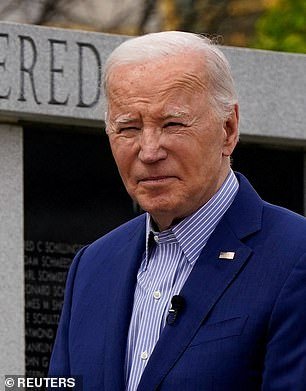
Outraged academics have criticized President Joe Biden (pictured right at a war memorial in Pennsylvania on Wednesday) for his “unacceptable” suggestion that his maternal uncle, Second Lieutenant Ambrose J. Finnegan (left) was eaten by cannibals after his plane crashed in Papua New Guinea. was shot down during World War II
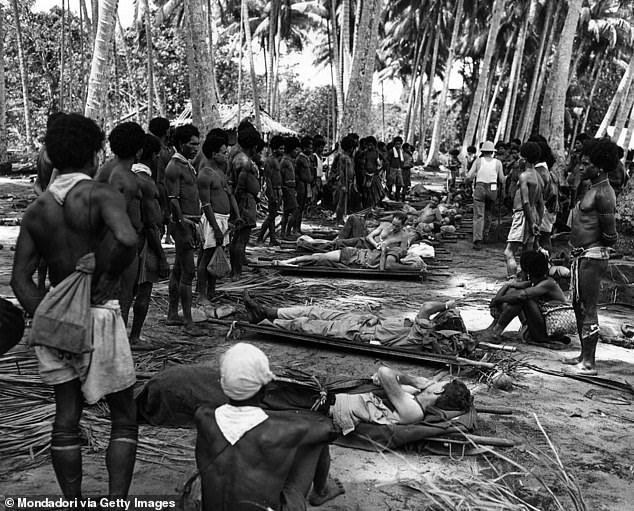
Local people look at wounded American soldiers. and Australian soldiers are placed on a row of stretchers. Papua New Guinea, December 1942
Kabuni argued that the Melanesian people, which also include people from Papua New Guinea, are “very proud” and would be offended by Biden’s generalization of cannibalism.
He explained how cannibalism was not practiced due to a lack of food, but instead as a sign of respect in very specific contexts – such as eating the body of a deceased relative to prevent it from decomposing.
‘But by taking it out of context and implying that your [uncle] jumps off the plane and somehow we think it’s a good meal, that’s unacceptable,” he added.
Economics lecturer Maholopa Laveil echoed Kabuni’s analysis, claiming Biden’s comments “paint PNG in a bad light.”
‘PNG has had a lot of negative press around riots and tribal fighting and this is not helping, and [the claims are] unfounded,” Laveil told the newspaper.
“For an American president — especially after a lot of cooperation with PNG and the work they’ve done in the Pacific — to even say that out of the blue, I don’t think that should have been said at all.”
However, Allan Bird, governor of Papua New Guinea’s East Sepik Province, said he was not offended and instead said he found the comments “hilarious” and “basically at a loss for words.”
He suggested that Biden likely heard his parents claim that Finnegan was eaten by cannibals as a child and that the family legend “probably stayed with him his whole life.”
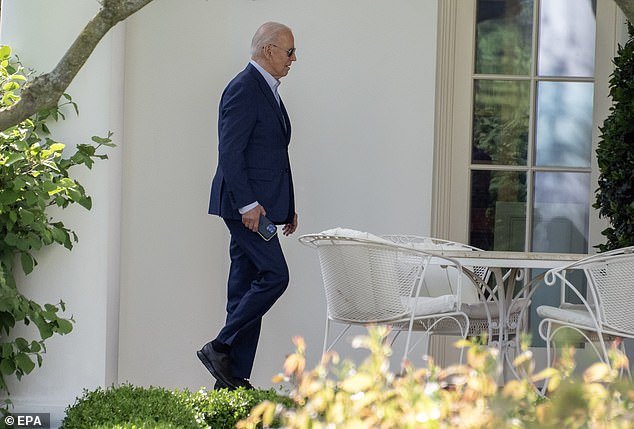
Local academics say Biden’s categorization of the act is “deeply offensive.” Historically, cannibalism has been reported in Papua New Guinea, but analysts say it was practiced in very specific contexts and that locals “wouldn’t just eat white men falling from the sky.” Joe Biden is pictured outside the Oval Office on Thursday
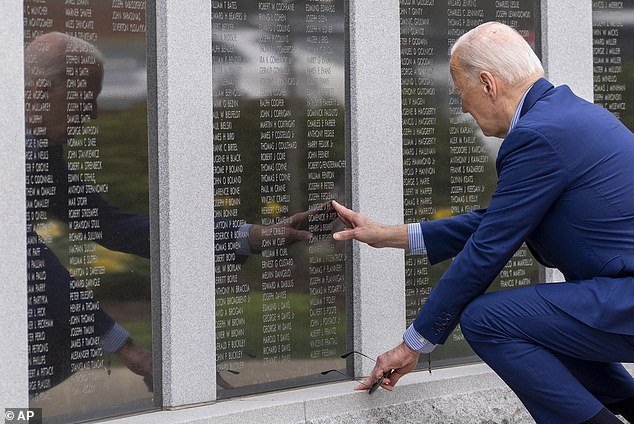
President Joe Biden reaches out to name his uncle Ambrose J. Finnegan, Jr. to touch, on a wall at a war memorial in Scranton, Wednesday, April 17, 2024, in Scranton, Pennsylvania. His uncle died in World War II
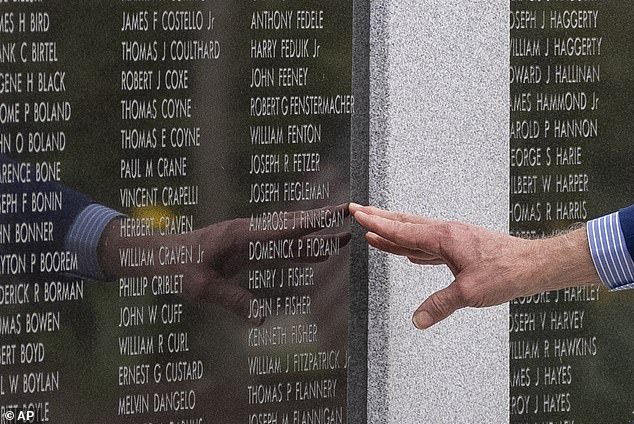
President Joe Biden touched on his uncle Ambrose J. Finnegan Jr.’s name in Scranton on Wednesday. on a wall at a war memorial in Scranton
Biden suggested for the first time that his uncle may have been eaten by cannibals after paying tribute to him on Wednesday during a visit to the war memorial in his hometown of Scranton, Pennsylvania.
The 81-year-old president, who was one year old when his uncle died in 1944, reached out to touch Finnegan’s name engraved on the monument.
“He was shot in New Guinea, and they never found the body because there were really a lot of cannibals in that part of New Guinea,” Biden later told an audience of steelworkers in Pittsburgh.
Biden also repeated the story to reporters, adding that “he was shot down in an area where there were a lot of cannibals in New Guinea” and that the US government had recovered parts of the crashed plane.
White House Press Secretary Karine Jean-Pierre later confirmed that Finnegan “lost his life when the military plane he was on crashed into the Pacific Ocean after taking off near New Guinea.”
The official defense POW/MIA Accounting agency said Finnegan’s plane was heading to New Guinea on a courier flight and was “forced to make an emergency landing in the ocean” off the island’s coast for unknown reasons.
The plane hit the water hard and three crew members failed to get out of the sinking wreckage, while one survived and was rescued by a passing ship, the website said.
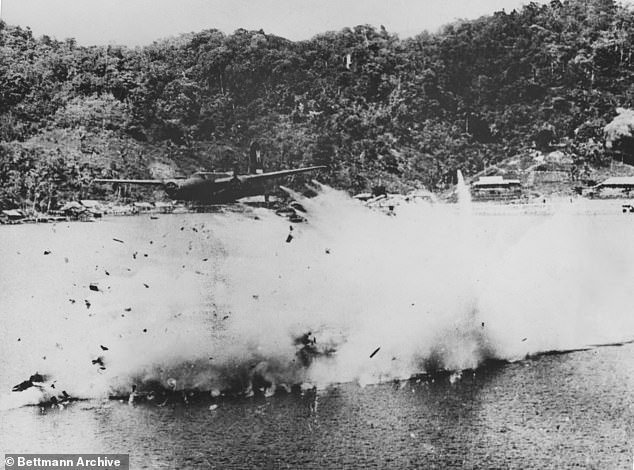
There is no footage of the crash of Joe Biden’s uncle’s plane. This photo shows a Douglas A-20 Havoc medium bomber being shot down by anti-aircraft fire during an attack on the Imperial Japanese seaplane base and port installations at Sekar Bay on 22 July 1944 at Kokas in Dutch New Guinea, Dutch East Indies.
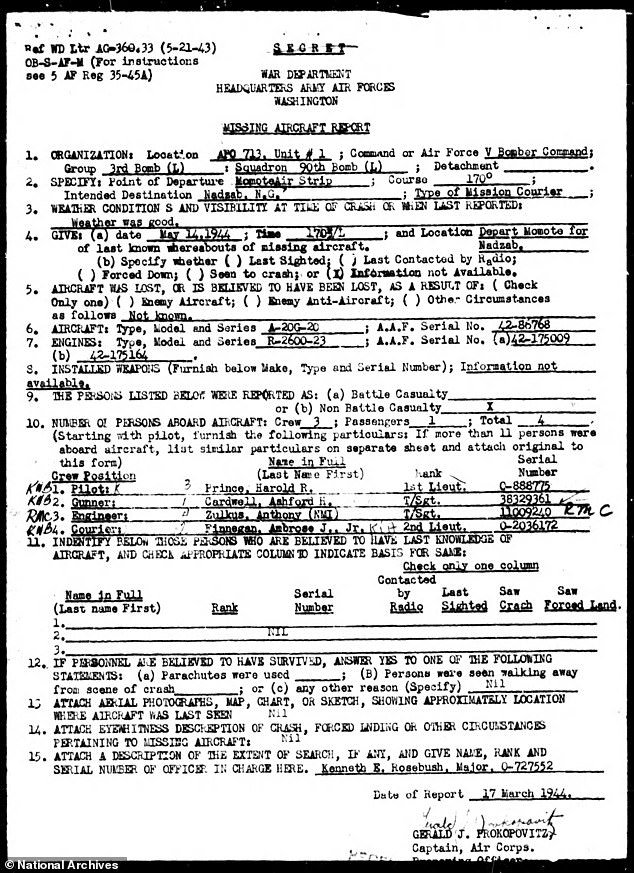
Missing Air Crew Report Number 48472D LT AMBROSE J. FINNEGAN
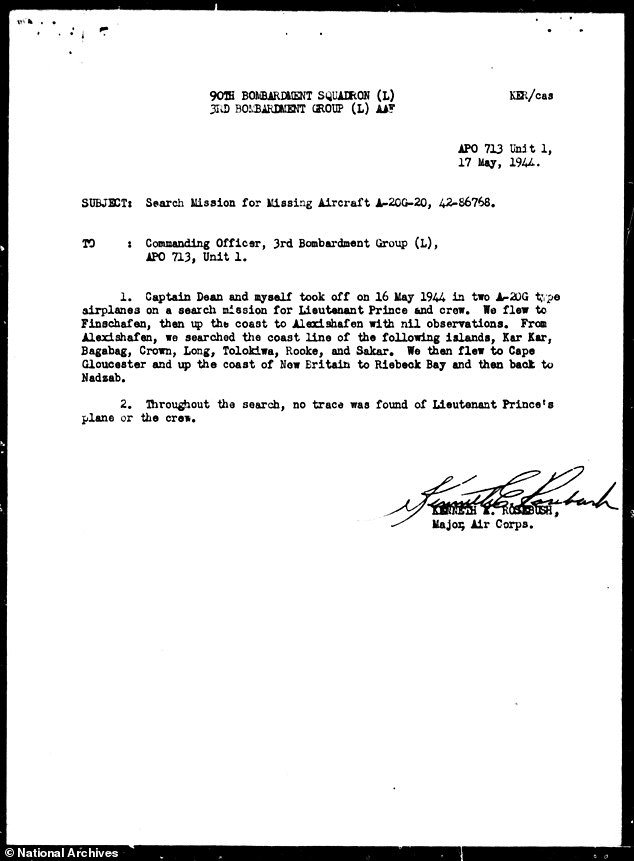
Missing Air Crew Report Number 48472D LT AMBROSE J. FINNEGAN
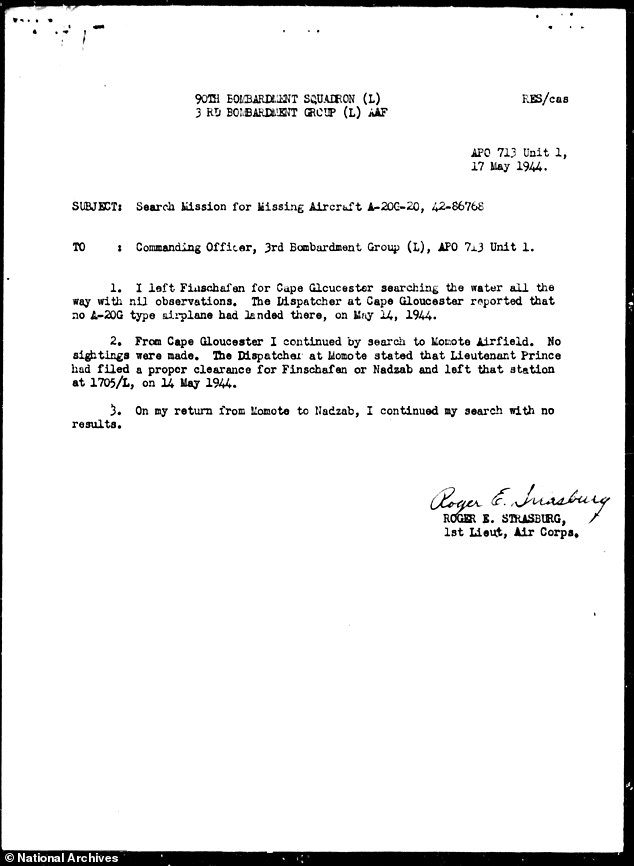
Missing Air Crew Report Number 48472D LT AMBROSE J. FINNEGAN
“An aerial search the following day found no trace of the missing aircraft or lost crew members,” the report said.
But despite the inaccuracy of his comment, Jean-Pierre defended Biden, saying it had been “incredibly emotional and important” for the president to be able to honor his uncle at the memorial.
Biden ‘highlighted his uncle’s story’ to show support for veterans and draw a contrast with election rival Donald Trump, who reportedly disparaged military members killed during the war as “losers” and “suckers” while running for president were, she said Thursday.
The issue is personal for Biden, whose eldest son Beau was a veteran of the Iraq War and whose death from brain cancer the president attributes to military “incinerator pits” used to burn waste.
